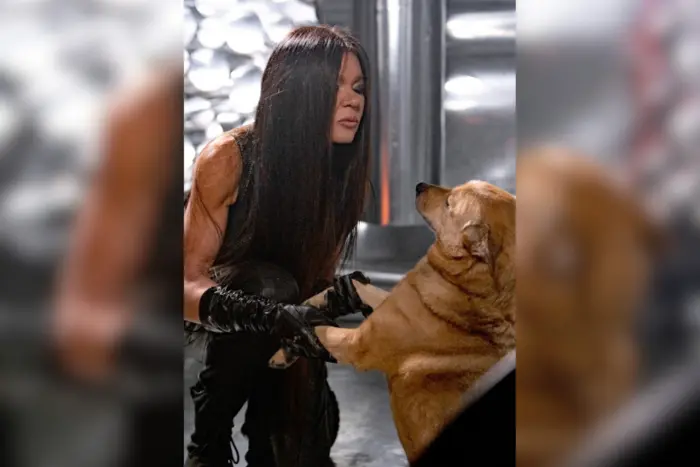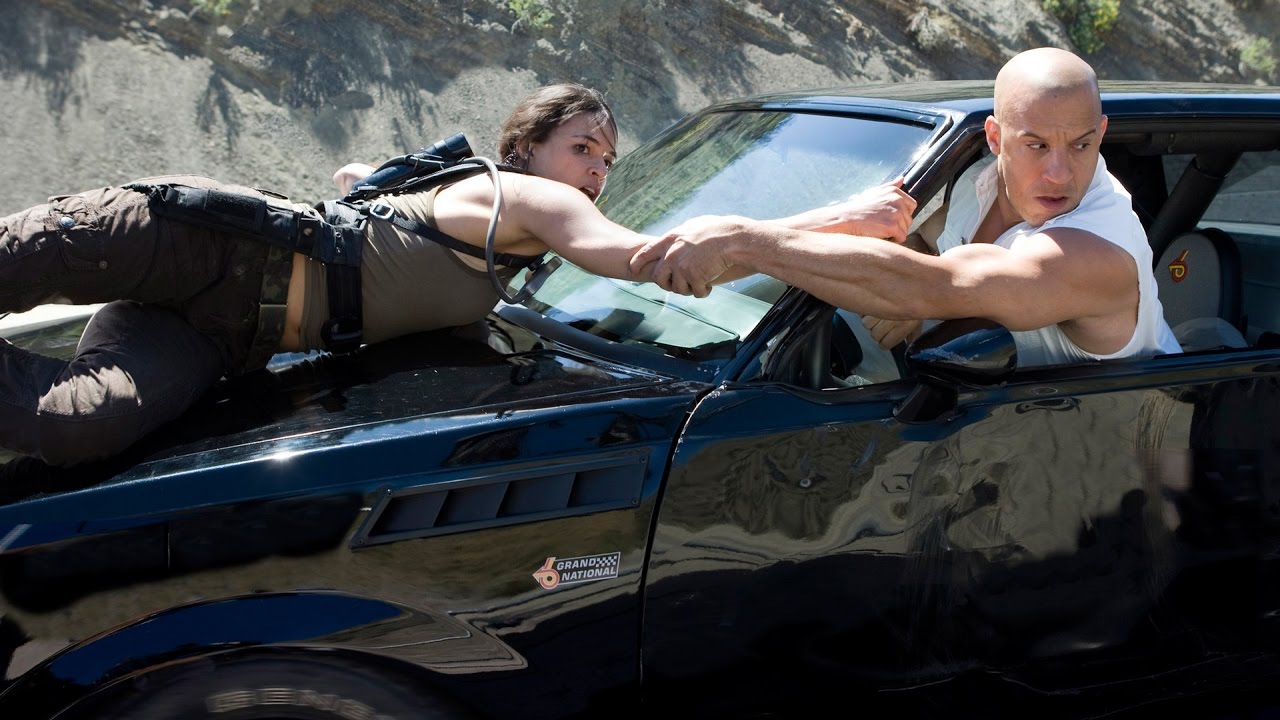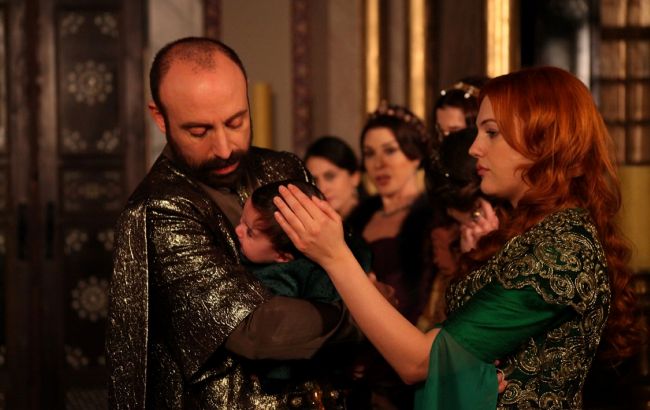Gangster Movies - The Best Films About the Lives of Criminal Authorities.

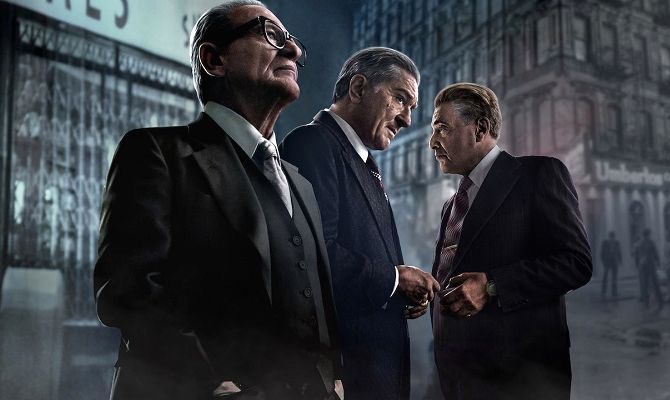
The theme of gangsters in cinema has been popular for a long Time, but in recent years it has appeared less frequently. Western audiences tend to enjoy this theme more, while the Ukrainian audience is more stringent in this regard.
However, if we consider it in general terms, movies about gangsters are quite diverse. The world of crime, intrigue, criminal authorities, and underground deals has always attracted viewers with its dramatic nature, danger, and deep psychology. Gangster films are a distinct and original genre of cinema that not only entertains but also allows a glimpse behind the scenes of the criminal world.
Gangster Movies
In this genre, characters often have two sides: on one hand, they are ruthless criminals, and on the other, charismatic leaders, sometimes even with their own code of honor. Gangster cinema is extraordinarily diverse - from classic mob dramas to modern adaptations of real events.
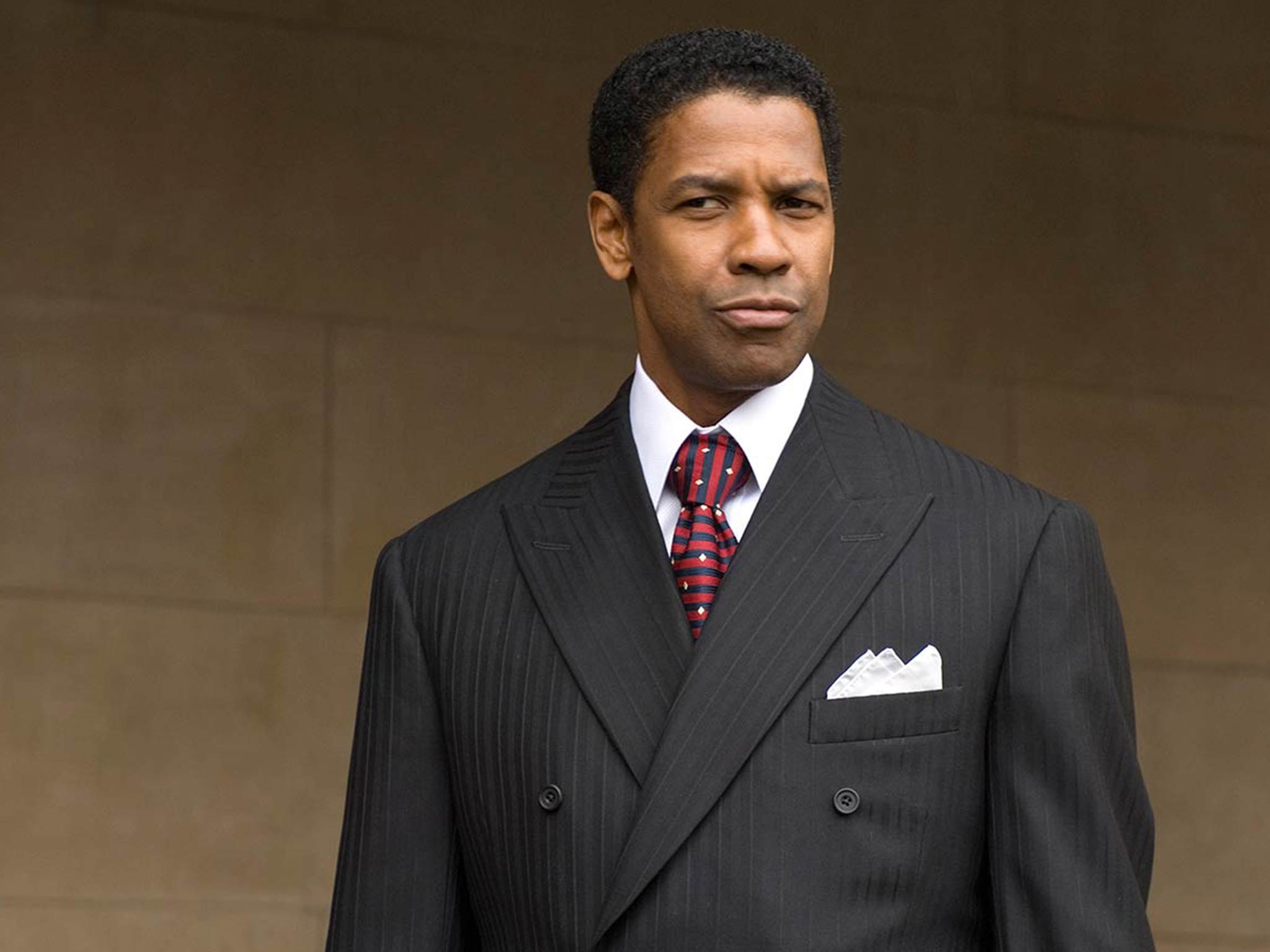
These films are often based on real biographies or historical facts, forcing the viewer to ponder the thin line between good and evil. Gangsters here are not just villains, but deep, complex characters whose stories unfold against the backdrop of corrupt systems, harsh survival rules, and the constant struggle for power. This is why films about gangsters have not lost popularity for decades. Among the brightest representatives of the genre are films like 'Gangster Squad', 'Once Upon a Time in America', 'Black Mass', 'Gangster', and 'Goodfellas'.
In general, gangster cinema originated in the 1930s when American society was experiencing economic depression, and the prohibition of alcohol contributed to the development of organized crime. It was then that the first legendary films about the mafia appeared, romanticizing the lives of criminals and turning them into cult characters. These films portrayed criminals as people who challenged the system and sometimes even as fighters for justice, albeit with a dark side.
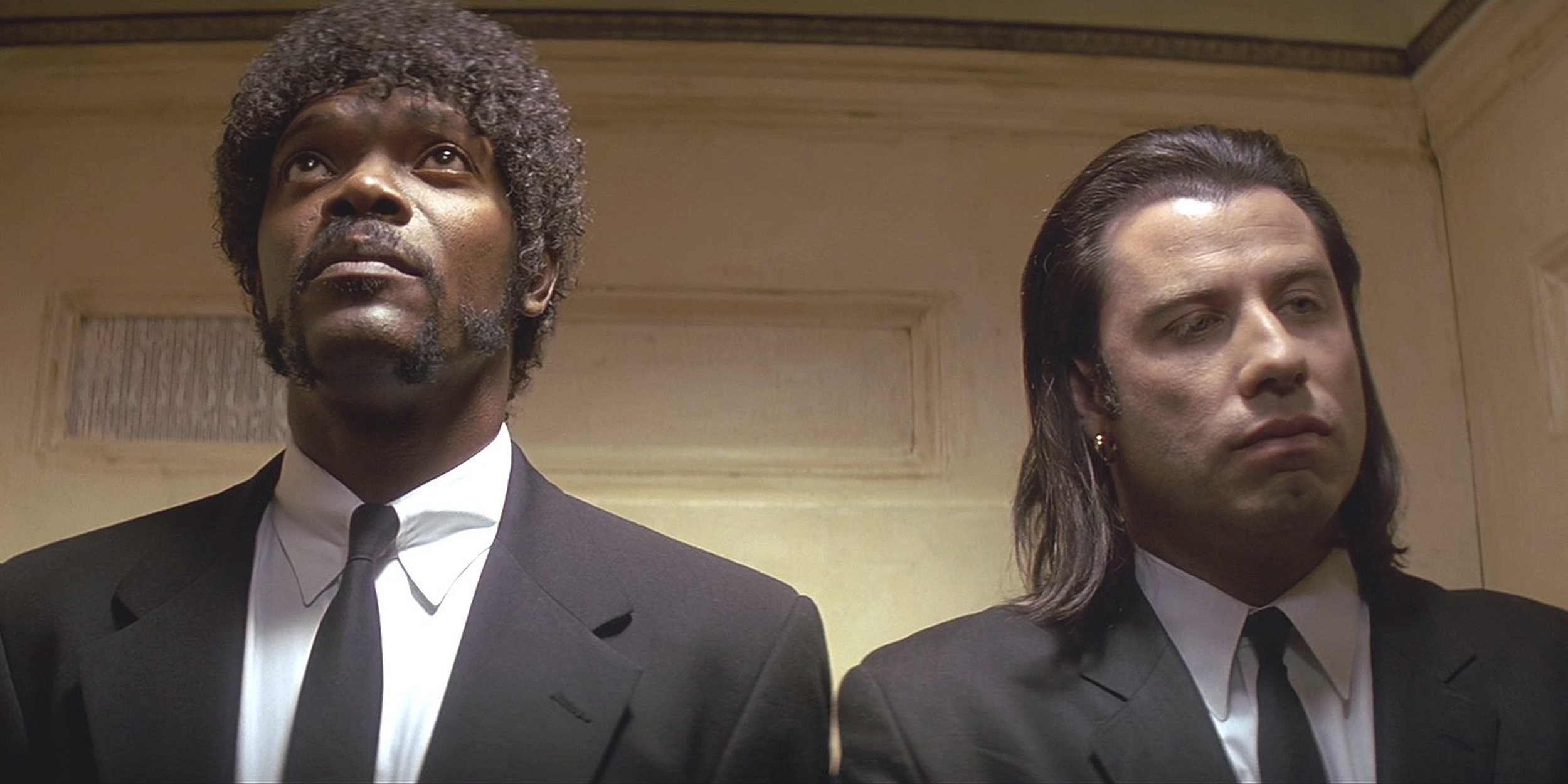
In the subsequent decades, the genre evolved and became more complex. The 1970s saw the emergence of masterpieces like 'The Godfather', which raised the bar for quality and depth in depicting the criminal world. Modern gangster films are characterized by even greater realism, attention to detail, psychological depth, and often rely on documentary facts.
Gangster Squad (Gangster Squad, 2013)
This film transports viewers to post-war Los Angeles, where the city is ruled by ruthless mobster Mickey Cohen. His empire thrives on fear, blackmail, bribed police, and impunity. The authorities are powerless until a small group of police decides to take radical action. They form a secret team - a real 'gangster squad' - to dismantle Cohen's criminal structure.
The film features a dynamic plot, vibrant shootouts, and stylish visual presentation. The cast includes a true star-studded lineup: Josh Brolin, Ryan Gosling, Sean Penn, Emma Stone. Particular attention is paid to the character of Mickey Cohen, played by Sean Penn - a ruthless yet charismatic mobster capable of destroying a person without remorse as well as quoting the Bible.
'Gangster Squad' is not just an action film, but a story about how people who live by the law sometimes have to break it to save others. There are no perfectly good or evil characters here - there is only the choice each one makes in challenging circumstances.
Once Upon a Time in America (Once Upon a Time in America, 1984)
One of the most epic and tragic films in the gangster genre. Director Sergio Leone created a true cinematic saga about the lives of Jewish gangsters in New York at the beginning of the 20th century. The film spans several decades, showing how childhood friendship grows into a criminal partnership, followed by betrayal, lost illusions, and bitter loneliness.
The main character, David 'Noodles' Aaronson, played by Robert De Niro, appears before the audience at various stages of his life - from a young criminal to an old man returning to the city of his past. The story about loyalty, cruelty, dreams, and redemption impresses not only with its scale but also with its emotional depth.
'Once Upon a Time in America' is not just a film about the criminal world, but a complex, multi-layered drama about time, loss, and the impossibility of returning to the past. The soundtrack by Ennio Morricone, the cinematography, and the slow pace of narration create a true masterpiece of world cinema.
Black Mass (Black Mass, 2015)
This film is based on the real story of James 'Whitey' Bulger - one of the most notorious gangsters from Boston. In the 1970s, he struck a deal with the FBI: in exchange for information about other criminals, agents ignored his own crimes. This 'alliance' led to a bloody lawlessness that lasted for years.
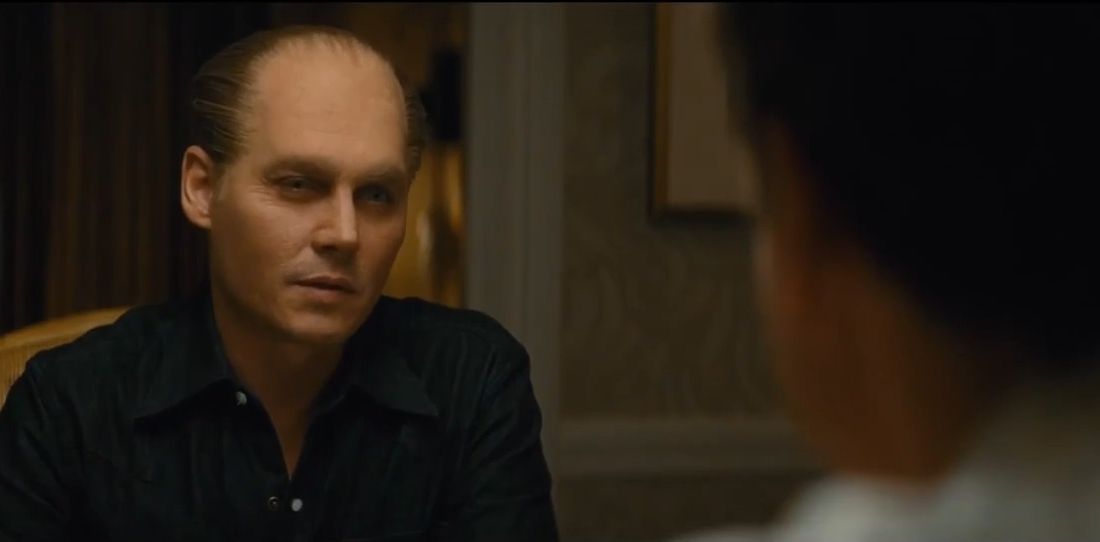
Johnny Depp, who played Bulger, created a chillingly convincing image - with a cold gaze, icy voice, and ruthless personality. His character combines charisma and brutality, and the viewer, even while feeling disgust, cannot tear themselves away from this character.
'Black Mass' is a story about corruption, betrayal, and how thin the line is between fighting crime and covering it up. The film reveals not only the psychology of the gangster but also the problems of the system itself, which sometimes becomes complicit in crime.
American Gangster (American Gangster, 2007)
The film tells the story of Frank Lucas - a heroic yet dangerous gangster who managed to build his empire on heroin trafficking in the 1970s. Unlike others, he was inconspicuous, measured, and acted wisely, which allowed him to remain under the police's radar for years.
The lead roles are played by Denzel Washington (Frank Lucas) and Russell Crowe (honest cop Richie Roberts), who find themselves on opposite sides of the barricade. Their confrontation is not just a game of cat and mouse but a conflict of two worldviews, two behavioral models where honesty and law collide with talent and brutality.
'American Gangster' is a story about rise and fall, about a criminal business turning into an empire, and about people trying to maintain themselves in a world where morality is a relative concept. The atmosphere of the 70s, realistic portrayal of events, and masterful acting make this film one of the best in its genre.
Goodfellas (Goodfellas, 1990)
The film by Martin Scorsese, based on real events, became a true classic of the genre. The story of Henry Hill - a boy who dreamed of becoming a gangster from childhood and eventually became part of a powerful mafia organization.
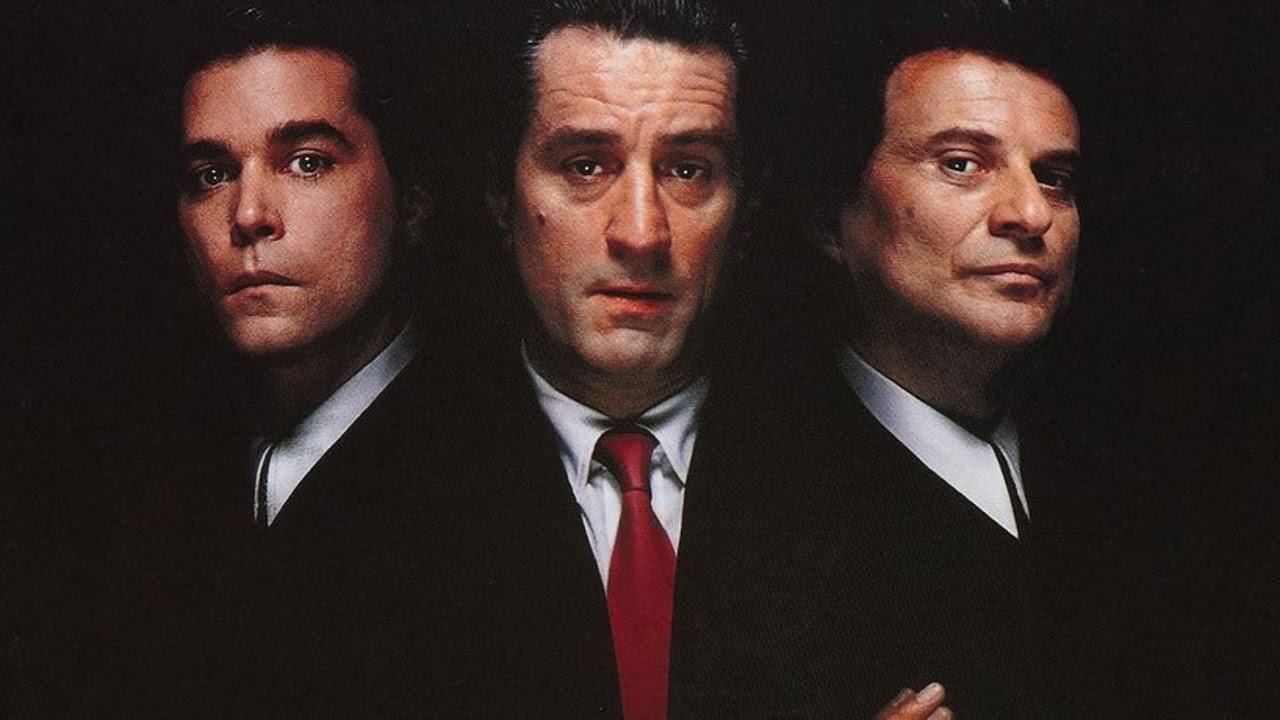
'Goodfellas' is not a romanticization of gangster life, but its realistic, even brutal depiction. It shows everything - glamour, wealth, power, and then - paranoia, betrayal, murder, and degradation. The cast - Robert De Niro, Ray Liotta, Joe Pesci - creates a powerful atmosphere in which the viewer is completely immersed in the world of the mafia.
This film does not embellish reality but shows it as it is. Behind the facade of expensive suits and luxurious life lie fear, violence, and total lack of morality. 'Goodfellas' is not just gangster cinema; it is a profound social statement about the price of 'success' in the criminal world.
The Irishman (The Irishman, 2019)
'The Irishman' is a grand criminal drama by Martin Scorsese that became a real event in modern cinema. The film, based on Charles Brandt's memoirs 'I Heard You Paint Houses', tells the story of Frank Sheeran - a World War II veteran who becomes a hitman and carries out contracts for the mafia.
At the center of the plot are complex relationships between Sheeran, mobster Russell Bufalino, and union leader Jimmy Hoffa. The lead role is played by Robert De Niro, accompanied by Al Pacino and Joe Pesci - three legends of gangster cinema gathered in one project after many years.
The film impresses not only with its acting but also with its atmosphere - a sense of the fluidity of time, nostalgia for the lost, and realization of one's sins. An important feature of the film is the use of actor de-aging technology, which allowed portraying characters at different periods of their lives.
'The Irishman' is not just a film about the mafia; it is a contemplation of aging, redemption, and what remains after power and fame fade away. A sad, slow, deeply philosophical story that concludes the gangster epic that began in the 1970s.
Road to Perdition (Road to Perdition, 2002)
This film by Sam Mendes is unique in the gangster genre. It combines the aesthetics of mafia drama with a deep emotional story about a father and son. The plot centers around Michael Sullivan, a hitman and executor of 'dirty work' for the Rooney mafia clan. When his son accidentally witnesses a murder, Sullivan is forced to flee with him, saving his child and trying to give him a different life.
The lead role is played by Tom Hanks, who steps beyond his usual kind-hearted characters to create the image of a silent but deeply emotional hero. His co-star is Paul Newman, in his last significant role, which became a true farewell to the screen.
'Road to Perdition' is not only a film about crime but also a deeply human story about loyalty, loss, and the possibility of choice. The film's aesthetics are striking: the shots resemble paintings, the camera silently observes the characters, and the soundtrack enhances the emotional tension. This is one of the most visually exquisite films in the genre.
The Untouchables (The Untouchables, 1987)
This film is a true classic depicting the fight against the mafia during the 'Prohibition Era' in the USA. At the center of the story is Eliot Ness, a Bureau agent who decides to dismantle Al Capone's criminal empire. However, it's not that simple - corruption is rampant everywhere, and Ness gathers a small but reliable team of 'Untouchables'.
Directed by Brian De Palma, the film's music was composed by the legendary Ennio Morricone. Kevin Costner plays Eliot Ness while Robert De Niro plays Capone, creating a charismatic yet frightening image of the mafia boss. Special mention should be made of Sean Connery, who played veteran cop Malone - his character became one of the most memorable in the film, earning the actor an 'Oscar'.
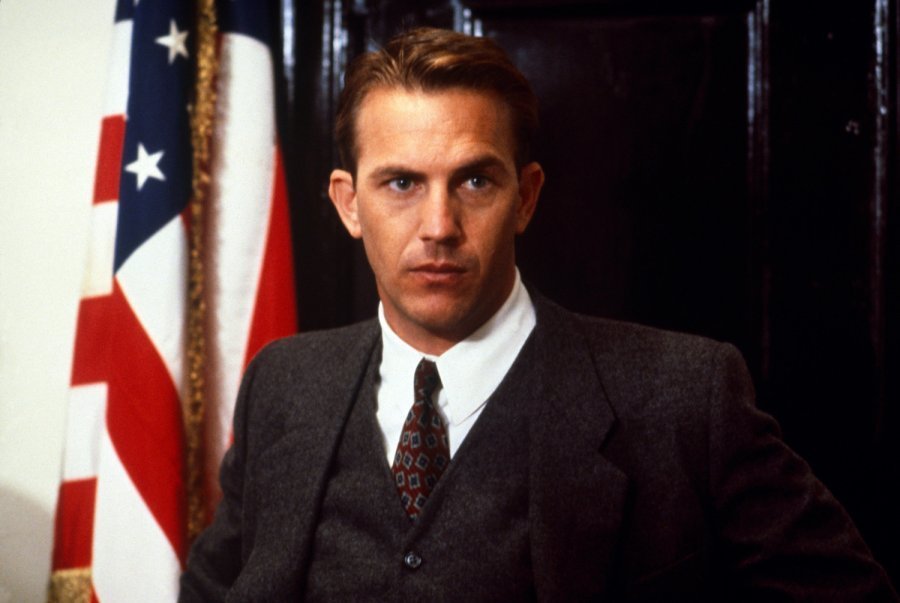
'The Untouchables' is a dramatic, heroic, and deeply personal story about the struggle for justice in a world where the truth often costs lives. The film combines action, psychological drama, and moral dilemmas, making it universally resonant.
Scarface (Scarface, 1983)
'Scarface' is a cult gangster film directed by Brian De Palma that became a true symbol of the 1980s. The film tells the story of Cuban immigrant Tony Montana, who rises to the top of the drug cartel in Miami from the bottom. His thirst for power, money, and control ultimately leads to his downfall.
Played by Al Pacino, Tony Montana became one of the most famous characters in cinematic history. His iconic phrases, audacious behavior, and brutality remain memorable long after. Although the character is far from a positive hero, the viewer feels his inner struggle, fears, and inability to stop.
The film is soaked in an atmosphere of violence, paranoia, ambition, and self-destruction. It shows how power and money can destroy a person who lacks limits. Despite harsh criticism during its release, 'Scarface' became a cult classic - its quotes are frequently referenced, and the image of Tony Montana transformed into a pop culture symbol of the era.
Public Enemies (Public Enemies, 2009)
In this film by Michael Mann, one of the most famous pages of American criminal history is recreated - the period of the 'Great Depression' and the activities of John Dillinger, a charismatic bank robber who became a national hero for many disillusioned with the system.
In the role of Dillinger - Johnny Depp, who created a multi-dimensional image not just of a criminal, but of a true legend of that time. His character is smart, brazen, and at times even sentimental. He is opposed by FBI agent Melvin Purvis, played by Christian Bale - cold, determined, and purposeful.
'Public Enemies' is a stylish, aesthetically refined film with deep dialogues, realistic shooting, and complex moral conflicts. It does not idealize criminals but shows how society itself creates such heroes, making them symbols of resistance against the system. This is a film about freedom, fear, honor, and the fatality of choice.
Read also
- Leonardo DiCaprio and the Oscar - when and for what the actor received the long-awaited award
- Movies You Can Watch in One Breath — The Best Films for Captivating Viewing

